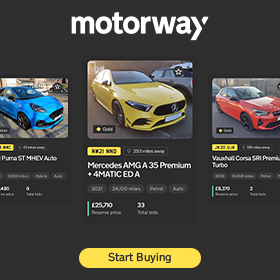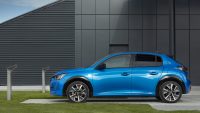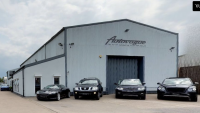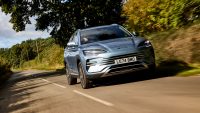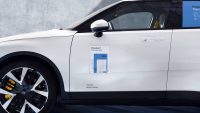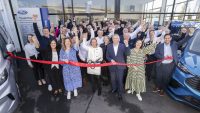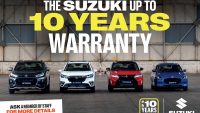Cambria Automobiles increased profits to £26.2m in 2022 as it consolidated its dealerships and added new brands to its roster.
In the group’s first set of financial results since it left the Stock Market, Mark Lavery’s firm revealed turnover increased marginally to £566.2m from £563.1m the year before.
Profit before tax surged 21.9 per cent from £21.5m the year before.
The results cover the firm’s financial year which ended on August 31 last year and have recently been posted at Companies House. Cambria left the Stock Market in September 2021.
The firm said these annual results included a one-off charge of £800k in relation to taking the group private. They also lay out how the deal was funded.
In 2022, Cambria sold 12,951 vehicles – down from 15,128 the year before – but ‘despite this, revenues were broadly in line year on year’, explained the dealership group.
Cambria sells cars through its Grange Motors, Invicta, Dove and Motorparks dealerships and represents Bentley, Jaguar Land Rover, Lamborghini, Rolls-Royce, McLaren and Aston Martin.
The firm says it has also recently partnered with Ineos, selling the Grenadier in the Midlands and Scotland and has also partnered with MG.
The group’s improved performance was put down to several different factors in 2022. These included better margins on new and used cars as the firm said ‘prices have risen and discounting disappeared’.
Cambria’s flexible leasing business, SOGO, and its repair and maintenance plan arm, RAMP, continued to deliver much higher margins for the business too.
Cambria said: ‘The results reflect the significant restructuring of the group following the Covid-19 pandemic.
‘The group decreased overall headcount substantially as well as cutting other overhead costs during 2020. 2021 is the first time the full benefit of these reductions has been seen. The board is committed to retaining this cost discipline as part of Chapter Two.’
The firm said it has been through a process of ‘rationalisation’ with its partners and is currently rebranding ‘spare sites’ for new activities.
This second phase plan, dubbed Chapter Two, will see Cambria continue to focus on the ‘high luxury segment’, while it also plans to expand with volume brands and motorbike sales.
Cambria said it ended the 2022 financial year with net debt of £15m compared to net cash the previous year of £13.1m.
However, it took on loans of £56.1m to buy the group’s shares back from public markets for £46.7m.
Looking ahead, Cambria said it cannot see this stellar performance continuing at quite the same level as the cost of living crisis starts to impact demand and manufacturers ramp up car production. It also concerned about rising prices.
The firm said: ‘Whilst Cambria is forecasting a step back in revenues and profit margins in its automobiles division, the cost measures taken during the Covid pandemic have put the group in a strong position to manage a return to normality in the automobiles market.
‘The group will therefore continue to generate positive profits and free cash flow regardless of the economic headwinds.
‘Further, the steps taken by the board after the take-private as part of Chapter Two will allow Cambria to replace this lost revenue and profits as the new business continues to develop and grow.’
Going private
Reflecting on the reasons for taking the group private – a subject Lavery spoke at length about during his headline interview at this year’s Car Dealer Live – the firm said the group’s share price never really reflected the growth of the business.
‘During the Covid-19 pandemic, it became apparent that the public markets did not understand the value of Cambria Automobiles Plc,’ said the firm in its annual report.
‘The then board noted that the company had joined the Alternative Investment Market (AIM) in April 2010 at a price of 50p per share (market valuation of £50m) but a decade later, in April 2020, the share price had fallen to 33p (market valuation of £33m).’
Cambria said this did not reflect the firm’s growth in profitability over that period, explaining it had grown profit before tax from £2.2m in 2010 to £10.2m in 2020.
The firm said: ‘It was incomprehensible in the opinion of the then board, that such impressive growth and return-on-capital-employed was not being rewarded by the market.’
It was this that led to the decision to make an offer for the shares at take the group private. A committee was convinced, with the exclusion of Lavery, and was advised by Rothschilds bankers.
The offer of 82.5p per share which valued Cambria at £82.5m was recommended. It was a premium of 65 per cent to the weighted average share price over the preceding five years.
‘Ultimately, on September 13, 2021, the offer from Cambria BIDCO Limited was declared unconditional and the take-private was completed,’ said the firm.
The purchase was funded by a new three-year loan of £56.1m and a director’s loan from Lavery of £1.5m. That director’s loan has already been repaid, as has £7.7m to the bank, said the annual report.
Lavery was named CEO and chairman of the group and Tim Duckers remained as MD. Paul Buddin, former CFO at McLaren, has also joined the group.
Lavery spoke at length about taking Cambria private at Car Dealer Live 2023. He gave his thoughts on who would be next to leave the Stock Market and his plans for the future.
You can watch the interview in full, and the others from the day, with a replay ticket available on the Car Dealer Live website.










